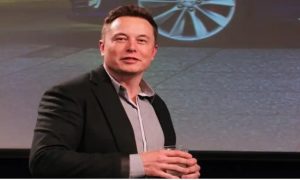A former banker from Hiroshima, Kishida spearheaded Japan`s effort to realise US President Barack Obama`s historic 2016 visit to the city devastated by US bombing seven decades earlier. Asked about his leadership style, Kishida, 64, said last month that bottom-up consensus building is just as important in politics as a top-down approach.
Tokyo: Japan’s former Foreign Minister Fumio Kishida has won the governing party leadership election and is set to be become the next prime minister of the Asian economic giant. Kishida replaces outgoing party leader Prime Minister Yoshihide Suga, who is stepping down after serving only one year since taking office last September.
As new leader of the Liberal Democratic Party, Kishida is certain to be elected the next prime minister on Monday in Parliament, where his party and coalition partner control the house.
Kishida beat Taro Kono, the vaccinations minister, in a runoff after moving ahead of two female candidates Sanae Takaichi and Seiko Noda in the first round.
Kishida – a consensus builder
A former banker from Hiroshima, Kishida spearheaded Japan`s effort to realise US President Barack Obama`s historic 2016 visit to the city devastated by US bombing seven decades earlier. Asked about his leadership style, Kishida, 64, said last month that bottom-up consensus building is just as important in politics as a top-down approach.
He now leads the LDP into a general election due by November.
Here are some of Kishida`s positions on key policies –
ECONOMY
Kishida had said if he were to become leader, fiscal consolidation would be a major pillar of policy. He also voiced doubts over the Bank of Japan`s ultra-loose policy, saying in 2018 that stimulus cannot last forever.
With the economy suffering from the pandemic, Kishida reversed course to say the BOJ must maintain its massive stimulus.
He proposed a spending package of more than 30 trillion yen, adding that Japan likely would not raise a sales tax rate from 10% “for about a decade”.
“Fiscal reform is the direction we need to head for eventually, though we won`t try to fill Japan`s deficit with immediate tax hikes,” he said on Saturday.
He stressed the need to distribute more wealth to households, in contrast to the focus of former premier Shinzo Abe`s “Abenomics” policies on boosting corporate profits in the hope benefits would trickle down to wage-earners.
DIPLOMACY, SECURITY
Kishida believes Japan, in cooperation with the United States and other like-minded countries, should stand firm against the growing assertiveness of authoritarian regimes like China.
“In order to protect such universal values as freedom, democracy, rule of law and human rights, we need to say firmly what needs to be said in the face of the expansion of authoritarian regimes like China, while cooperating with countries that share such values,” he said this month.
Kishida plans to bolster the capability of the coast guard, as Japan remains at loggerheads with China over the sovereignty of a group of small East China Sea islets.
Kishida supports passing a parliamentary resolution condemning China`s treatment of members of the Uyghur minority and wants to appoint a prime ministerial aide to monitor their human rights situation. China denies accusations of abuse.
Kishida considers acquiring the capability to strike enemy bases a viable option, as North Korea presses ahead with its nuclear and missile programmes.
He welcomes Taiwan`s bid to join a free trade pact called the Comprehensive and Progressive Agreement for Trans-Pacific Partnership, whose members include Australia, Canada, Japan and New Zealand.
ENERGY, CLIMATE CHANGE
The 2011 Fukushima nuclear disaster severely damaged public trust in nuclear energy, but Kishida believes it should remain an energy option to ensure stable and affordable electricity.
Japan is striving to meet its target of becoming carbon neutral by 2050 and a drastic reduction of fossil fuel-based power generation is inevitable.
“I do think renewable energy is important. But when I think about whether relying solely on renewable energy is good enough, I believe we need to have other options ready, like hydrogen, small nuclear facilities and nuclear fusion,” he recently said.



































